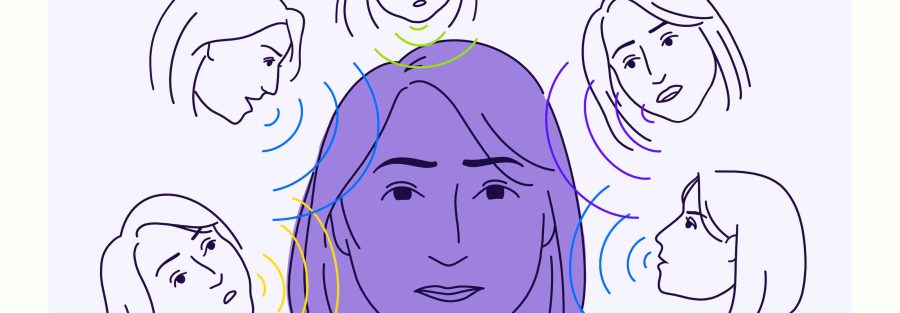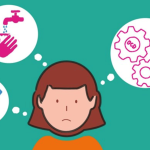1. Definition
Schizophrenia is a severe and chronic mental disorder that affects how a person thinks, feels, and behaves. People with schizophrenia may seem like they have lost touch with reality, which can be distressing for them and for those around them. It is one of the most complex and least understood mental disorders.
2. Diagnostic Criteria (DSM-5-TR)
According to the DSM-5-TR, the diagnosis of schizophrenia requires the presence of two or more of the following symptoms, each persisting for a significant portion of time during a 1-month period (or shorter if successfully treated):
- Delusions: False beliefs that are not based in reality and not explained by a person’s cultural context.
- Hallucinations: Seeing or hearing things that do not exist. Hearing voices is the most common hallucination.
- Disorganized speech: Frequent derailment or incoherence of speech that makes communication difficult.
- Grossly disorganized or catatonic behavior: This includes unusual behavior that does not serve a purpose, excessive and abnormal movements, or a complete lack of response or speech (catatonia).
- Negative symptoms: This refers to reduced or lack of ability to function normally. For example, the person may neglect personal hygiene or appear to lack emotion (doesn’t make eye contact, doesn’t change facial expressions).
At least one of these symptoms must be delusions, hallucinations, or disorganized speech. Continuous signs of the disturbance persist for at least six months, which must include at least one month of symptoms (or less if treated).
3. Prevalence and Impact
Schizophrenia affects about 1% of the global population. The disorder typically manifests in late adolescence or early adulthood, with men typically experiencing onset earlier than women. The impact of schizophrenia is profound, affecting educational performance, work efficacy, and social relationships. It is associated with significant disability and may affect all major life areas.
4. Treatment Approaches
The treatment of schizophrenia is multi-faceted, often requiring a combination of medical and psychosocial interventions:
- Medications: Antipsychotic medications are the primary treatment for schizophrenia. They are often effective in managing symptoms of psychosis, such as delusions and hallucinations, as well as reducing the risk of future psychotic episodes.
- Psychotherapy: Cognitive behavioral therapy (CBT) is commonly used to help manage the symptoms, improve social functioning, and challenge the distorted thinking associated with schizophrenia, such as paranoia.
- Community Support Programs: These include rehabilitation, targeted therapy, employment support, and social skills training, helping individuals to reintegrate into society and lead productive lives.
5. Challenges and Considerations
Managing schizophrenia is challenging due to the complexity of the disorder and the stigma associated with it. People with schizophrenia often face significant social and health disparities, including higher rates of homelessness, unemployment, and physical health issues, such as cardiovascular disease, leading to reduced life expectancy.
6. Research and Future Directions
Research into schizophrenia has expanded significantly in recent years, focusing on understanding the genetic, environmental, and neurological underpinnings of the disorder. Innovations in neuroimaging and genetics hold promise for developing better diagnostic tools and more personalized treatment approaches to improve outcomes for patients.
Further Reading and Resources:




